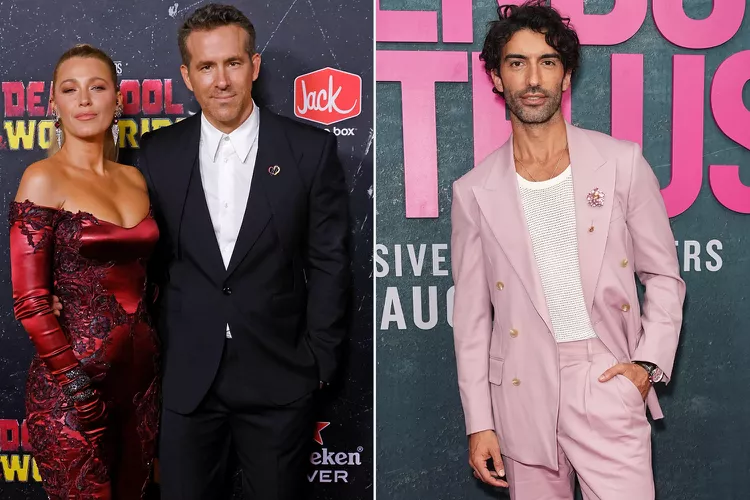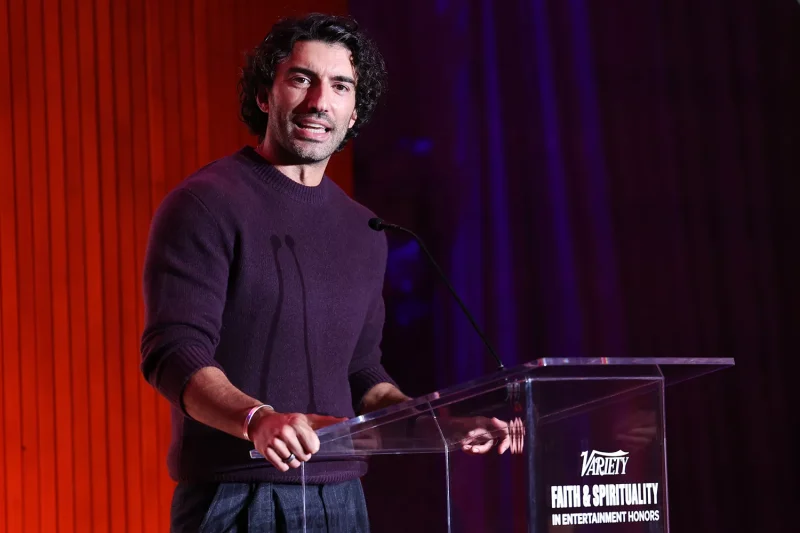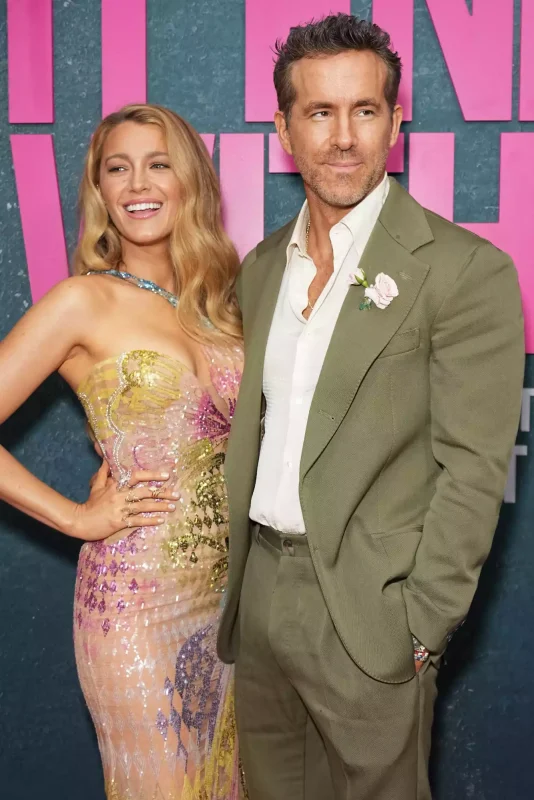In a lawsuit filed by Baldoni against ‘The New York Times’ on Dec. 31, he claimed that Reynolds pressured his former agent at the ‘Deadpool & Wolverine’ premiere

The talent agency William Morris Endeavor has denied it was pressured by Blake Lively and Ryan Reynolds to drop Justin Baldoni, one day after Baldoni filed a $250 million lawsuit against The New York Times, which includes an allegation that the superstar couple attempted to have his agency drop him.
In the lawsuit, filed on Tuesday, Dec 31, in Los Angeles Superior Court and obtained by PEOPLE, Baldoni, 40, claims that Reynolds, 48, demanded that his WME agent drop him at the Deadpool & Wolverine premiere.
“The wielding of power and influence became undeniable,” the filing states. “Baldoni and Wayfarer grew increasingly fearful of what Lively and Reynolds were capable of, as their actions seemed aimed at destroying Baldoni’s career and personal life.”

However, in a statement to The Hollywood Reporter, WME has denied Baldoni’s claims about being pressured to drop him.
“In Baldoni’s filing there is a claim that Reynolds pressured Baldoni’s agent at the Deadpool & Wolverine premiere. This is not true,” the agency said on Wednesday, Jan. 1, per THR. “Baldoni’s former representative was not at the Deadpool & Wolverine premiere nor was there any pressure from Reynolds or Lively at any time to drop Baldoni as a client.”
Reps from WME have not responded to PEOPLE’s request for comment.
As of Dec. 21, WME dropped Baldoni, according to multiple outlets including Deadline, which was first to report the news.
The decision to drop the Jane the Virgin alum was made in part due to the complaint filed by his It Ends with Us costar Lively, which accused Baldoni of sexual harassment, among other claims, per Deadline. Lively, 37, is also a client of WME and continues to be represented by the agency.
Baldoni’s lawyer Bryan Freedman has called the allegations “false, outrageous and intentionally salacious with an intent to publicly hurt.”
At the time, WME did not comment when contacted by PEOPLE, and a representative for Baldoni did not immediately respond to PEOPLE’s request for comment.
On Tuesday, Dec. 31, Baldoni was among plaintiffs who filed a lawsuit against the Times, accusing the newspaper of using “ ‘cherry-picked’ and altered communications stripped of necessary context and deliberately spliced to mislead” in the article.

“In this vicious smear campaign fully orchestrated by Blake Lively and her team, the New York Times cowered to the wants and whims of two powerful ‘untouchable’ Hollywood elites, disregarding journalistic practices and ethics once befitting of the revered publication by using doctored and manipulated texts and intentionally omitting texts which dispute their chosen PR narrative,” Baldoni’s attorney, Bryan Freedman, said in a statement to PEOPLE.
Representatives for the actress did not immediately respond to PEOPLE’s request for comment.
The same day, Dec. 31, Lively’s attorneys filed a federal complaint against Wayfarer Studios, Baldoni and other parties in the Southern District of New York.
“Ms. Lively previously sent her California Civil Rights Department Complaint in response to the retaliatory campaign Wayfarer launched against her for reporting sexual harassment and workplace safety concerns,” Lively’s attorney said in a statement to PEOPLE. “Unfortunately, Ms. Lively’s decision to speak out has resulted in further retaliation and attacks.”
Lively originally filed a bombshell complaint alleging sexual harassment and retaliation aganist Baldoni, his production company and others on Dec. 20, which is a precursor to filing a discrimination lawsuit in California.
The complaint, which includes texts obtained through subpoena, and was summarized in a report released on Dec. 21 by The New York Times, claims that “behind closed doors” Lively “suffered from grief, fear, trauma, and extreme anxiety” as a result of Baldoni’s alleged behavior, including showing her explicit images and videos, asking her about her personal sex life and attempting to add intimate scenes to the film that she had not originally agreed to.







